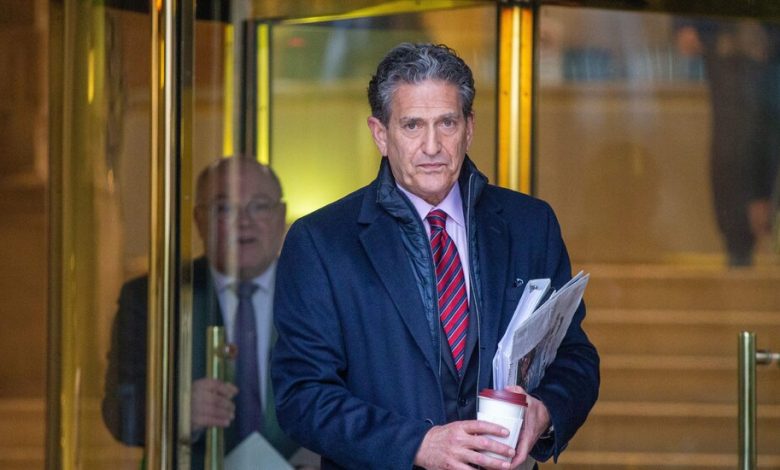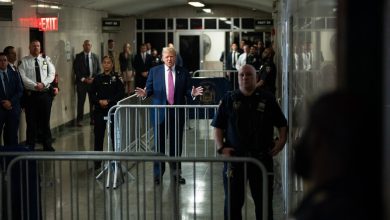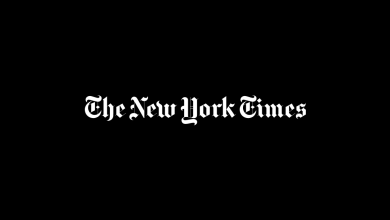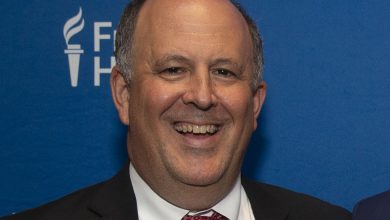State Dept.’s Fight Against Disinformation Comes Under Attack

A Republican-led campaign against researchers who study disinformation online has zeroed in on the most prominent American government agency dedicated to countering propaganda and other information operations from terrorists and hostile nations.
The agency, the State Department’s Global Engagement Center, is facing a torrent of accusations in court and in Congress that it has helped the social media giants — including Facebook, YouTube and X — to censor Americans in violation of the First Amendment.
The attorney general of Texas, Ken Paxton, and two conservative digital news outlets last week became the latest plaintiffs to sue the department and its top officials, including Secretary of State Antony J. Blinken. The lawsuit said the center’s work was “one of the most egregious government operations to censor the American press in the history of the nation.”
The center faces a more existential threat in Congress. House Republicans blocked a proposal this month to reauthorize the center, which began in 2011 to counter the propaganda of terrorist groups like Al Qaeda and the Islamic State. A small agency, with a regular staff of 125 people, many of them contractors, and a budget of $61 million, the center coordinates efforts across the government to track and expose propaganda and disinformation from Russia, China and other adversaries. With its mandate set to expire at the end of next year, the center is now operating under a shroud of uncertainty, even though its supporters say there is no evidence to back the charges against it.
If the Republicans hold firm, as a core bloc in the House appear determined to do, the center would disbandamid two major regional wars and a wave of elections in 2024, including the U.S. presidential campaign.
James P. Rubin, the center’s coordinator since early this year, disputed the allegations that his organization censored Americans’ comments online. The center’s legal mandate, he said, was to “focus on how foreign adversaries, primarily China and Russia, use information operations and malign interference to manipulate world opinion.”
“What we do not do is examine or analyze the U.S. information space,” he said.
The center’s fate has become enmeshed in a much broader political and legal campaign over free speech and disinformation that has gained enough traction to reach the Supreme Court.
A lawsuit filed last year by the attorneys general of Missouri and Louisiana accused numerous government agencies of cajoling or coercing social media platforms into removing content that spread what officials called false or misleading information about the Covid-19 pandemic, the presidential election of 2020 and other issues.
A federal court ruled in the plaintiffs’ favor in July, temporarily barring government officials from contacting officials with the companies except in matters of law enforcement or national security. An appeals court largely upheld the ruling in September but limited its reach, excluding several agencies from the lower court’s injunction against contacts, the Global Engagement Center among them.
“There is no indication that State Department officials flagged specific content for censorship, suggested policy changes to the platforms or engaged in any similar actions that would reasonably bring their conduct within the scope of the First Amendment’s prohibitions,” wrote a three-judge panel for the United States Court of Appeals for the Fifth Circuit in New Orleans.
The Supreme Court is expected to weigh in next spring on the Missouri case, a decision that could have big ramifications for the government and free speech in the internet era. The campaign against researchers who study the spread of disinformation has already had a chilling effect on universities, think tanks and private companies, which have found themselves smothered by subpoenas and legal costs.
The efforts have been fueled by disclosures of communications between government officials and social media companies. Elon Musk who released a selection of messages after he purchased Twitter, since rebranded as X, called the Global Engagement Center “the worst offender in US government censorship & media manipulation.”
“They are a threat to democracy,” wrote Mr. Musk, who has restored numerous accounts that Twitter had suspended for violating the platform’s guidelines for disinformation, hate speech and other content. (Over the weekend, he allowed the return of Alex Jones, a far-right conspiracy theorist who spent years falsely claiming the Sandy Hook Elementary School shooting in 2012 was a hoax.)
The Global Engagement Center has faced criticism before — not over censorship, but for having little effect at a time when global propaganda and disinformation has become more pernicious than ever with the rise of social media.
A report by the State Department’s inspector general last year said the center suffered from a sclerotic bureaucracy that limited its ability to manage contractors and failed to create a strategic planning process that could measure its effectiveness. The department accepted the findings and promised to address them, the report said.
Mr. Rubin, who was appointed at the end of last year, has sought to bolster the center’s core mission: challenging disinformation from foreign adversaries intent on undermining American democracy and influence around the world.
In September, the center released a sweeping report that accused China’s Communist Party of using “deceptive and coercive methods” to try to control the global information environment. A month later it released two reports on Russia’s covert influence efforts in South America, including one intended to pre-empt an operation before it got off the ground.
The center has had regular interactions with the social media companies, but, the appeals court ruled, there is no evidence that its officials coerced or otherwise influenced the platforms. Federal regulations prohibit any agency from engaging in propaganda at home.
“We are not in the business of deciding what is true or not true,” Mr. Rubin said, adding that the center’s role was to identify “the hidden hand” of foreign propaganda.
Since the Republicans took control of the House of Representatives in January, however, the Global Engagement Center has faced numerous subpoenas from a subcommittee investigating the “weaponization of government,” as well as depositions in lawsuits and requests for records under the Freedom of Information Act.
At public hearings, House Republicans have repeatedly threatened not to renew the center’s expiring mandate and have grilled department officials about Americans whose accounts have been suspended. “The onus on you is to change my mind,” Representative Brian Mast, a Republican from Florida, told Daniel Kimmage, the center’s principal deputy coordinator, at a hearing in October.
The Democrats in both houses of Congress and the Republicans in the Senate reached an agreement to extend the center’s mandate as part of the defense authorization act — one of the few pieces of legislation that might actually pass this year — but House Republicans succeeded in stripping the provision out of the broader legislation.
The plaintiffs in the lawsuit filed last week in Texas argued that the department had in effect sidestepped its legal constraints by providing grants to organizations that routinely identify sources of disinformation in public reports and private interactions with social media platforms. The organizations include the Global Disinformation Index, a nonprofit based in London; and NewsGuard, a company in New York.
The two news organizations that joined Texas in filing the suit — The Federalist and The Daily Wire — were both listed by the Global Disinformation Index in a December 2022 report as having a high risk for publishing disinformation. (The New York Times was among those rated as having a minimum risk. The Times’s website, the report said, “was not always free of bias, but it generally avoided targeting language and adversarial narratives.”)
The center’s grant to the group — $100,000 in total — went to a project focused on disinformation in Southeast Asia. But the lawsuit claimed that its support injured the outlets “by starving them of advertising revenue and reducing the circulation of their reporting and speech — all as a direct result of defendants’ unlawful censorship scheme.”
Josh Herr, The Daily Wire’s general counsel, said the outlet might never know “the full extent of the business lost.”
“But this lawsuit is not about quantifying those losses,” he said. “We are not seeking damages. What we are seeking is to protect our rights, and all publishers’ rights, under the First Amendment.”
Nina Jankowicz, a researcher who briefly served as the head of a disinformation advisory board at the Department of Homeland Security last year before controversy scuttled her appointment and the board itself, said the argument that the State Department was responsible for the impact of research it did not finance was absurd.
Ms. Jankowicz said that the campaign to cast efforts to fight disinformation as a form of censorship had proved politically effective even when evidence did not support the claims.
“I think any American, when you hear, ‘Oh, the administration, the White House, is setting up something to censor Americans, even if that has no shred of evidence behind it, your ears are going to prick up,” she said. “And it’s really hard to disprove all that.”




